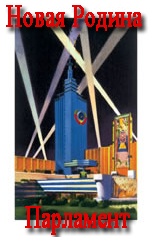Meadow
A Brief History
Called Novaya Rodina (New Motherland) by its Russian inhabitants despite its renaming by the Celestine Cartographical Nomenclature Uniformity Act of Parliament of 2511, Meadow was terraformed and settled in the early years soon after the Exodus. The 'Verse offered people from Earth That Was a unique opportunity to claim entire worlds for the exclusive use of individual cultures or people. As the superpowers from the Pre-Exodus days colonized the two biggest worlds in the Core in an echo of the geopolitical situation on ETW, the lesser powers--smaller but no less important in the mass Exodus effort--also laid claim to a world or two as befitting their role as back-up players in the Exodus enterprise. The Russians, being a superpower in their own corner of Earth That Was and accustomed to sovereign autonomy, left the Core to terraform a New Russia as soon as it was possible to do so.
The Russians, however, were hampered by their cultural tendency to more authoritarian rule and a talent for getting stuck with the not-quite-right, and though they settled their world and it was as remote as they wished, the terraforming wasn't as successful as hoped due to the Russians insistance that it be done *their* way, following their business model, using their incentive system. During the period of unregulated expansion after Landing, Novaya Rodina, like many of the lesser worlds, got bypassed or overlooked by the centralized powers of the Core. Certainly by the time the Alliance consolidated its resources and political will and began providing services and benefits as a benevelent superpower to the other worlds outside its boundaries, Novaya Rodina had managed to stabilize its environment and develop its industry independently of extraterrestrial aid, and from that position refused Alliance help. And so Novaya Rodina grew into an even more insular and tightly-knit homogeneous society and culture.
This insistance on cultural and political isolation continued until Autumn 2505, when a combination of industrial disasters, the subsequent economic crash caused by disasters, and the crippling effect of a commercial embargo on the Gerogia System brought Novaya Rodina's native government to the brink of collapse and it was only through the efforts of a daring backbencher of its Diet to bring the world's plight to the attention of Parliament that Novaya Rodina was saved from ruin. Emergency relief in the form of monies and human and technical resources poured in over the next two years and as a stipulation for the aid, the Alliance negotiated from Novaya Rodina a client-state treaty that included a 200-year lease on a La Grange point in orbit dedicated to an Alliance military platform and an Alliance-appointed Governor with plenipotentiary powers over the Novaya Rodinan Diet, with the agreement that the Client status and Governorship may be dissolved upon the native government regaining its ability to execute its duties in a sustainable and equitable manner. The installation of the Governor was a highly contested point of the treaty, but objections were overruled by a sizable margin as the Diet voted in favor of getting the aid necessary to repair the damage wrought by the disasters and to restore stability to the economy and society at large.
In the decade-plus since the treaty, Meadow has repaired most of the damage dealt it and can claim to have restored 85% of the industrial infrastructure it lost. Experts predict another 7% need never be recovered as new, more efficient practices and facilities are implemented in the place of the old. Unemployment, alcoholism, domestic abuse, and petty crime have been significantly reduced in the areas hardest hit, and conditions have improved quantifiably elsewhere. Most attribute the improvements to Alliance financial aid and the institution of standard Alliance practices of universal health care and employment benefits.
Despite the demonstrable advantages of Alliance clientship, several Acts instituted in obedience to Unification, including universal mandatory education of Mandarin and English in schools over the native Russian tongue, as well as the renaming of Novaya Rodina as per the Celestine Nomenclature Uniformity Act, have engendered much ill-feeling toward the Alliance amongst the native populace. As a result, there is a growing political pressure for the dissolution of the Governor's appointment and the reinstatement of full autonomy to the Novaya Rodina government. Negotiations are ongoing, pending final verdict as to Meadow's ability to function independently of Alliance assistance.
Natural Resources and Industry
Meadow is blessed with expansive rolling steppes and forested taiga, several sizeable oceans and some truly spectacular mountain ranges. The original inhabitants chose well toward their goal to recreate as closely as possible their beloved country on Earth That Was. Even the climate engineers have managed to reproduce the weather conditions of the Russian ancestral home. Winters are harsh over much of Meadow, with snow and ice lasting over seven months of the year. Summers are brief and warm and vibrant. Spring and Autumn are mild and wet.
The soil is rich and black, with a fair amount of volcanic material, a relic of the planets geological past, although current volcanic activity is confined to a relatively small total area of the planet's surface. As a consequence, most of the arable land area of Meadow is optimal for growing food crops and pasturage for livestock.


